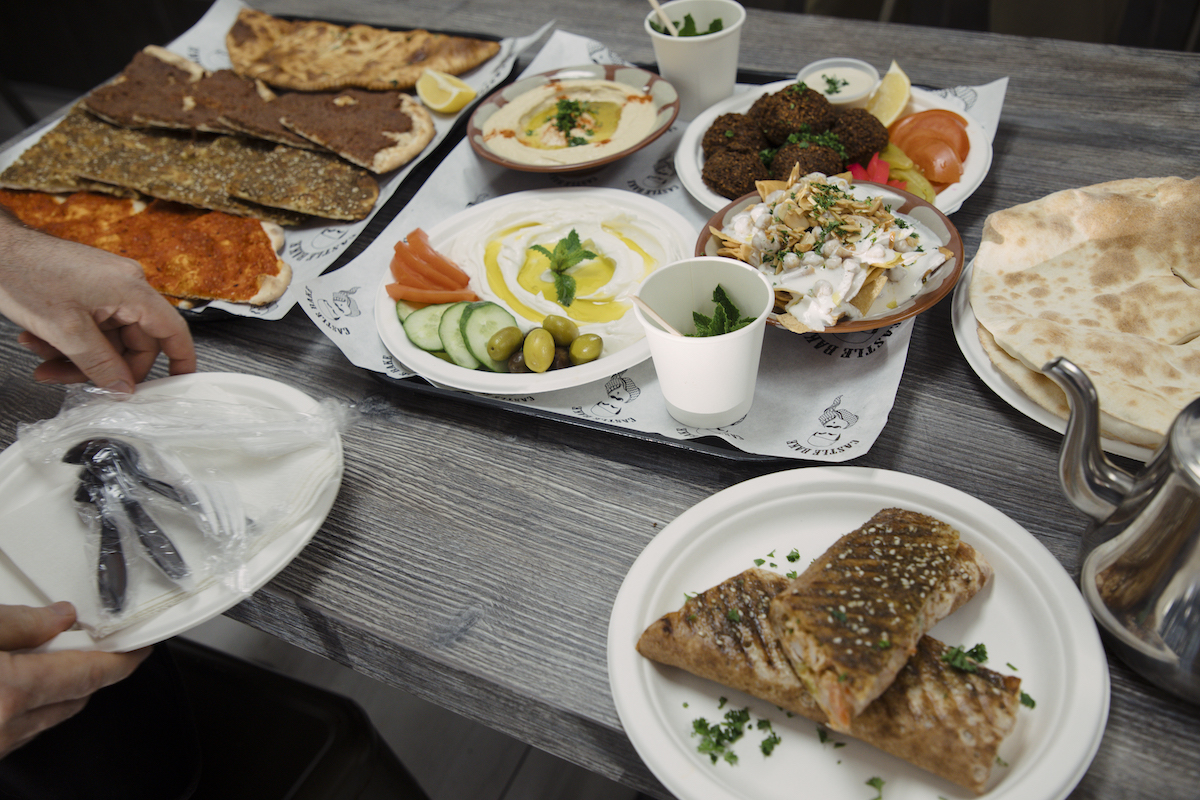Walking into Castle Bake (Edify‘s Best Brunch, ’23) for the first time, I was surprised to find a massive photo mural of Sana’a, Yemen capital’s old town. It’s a Lebanese restaurant after all, but once I learned the family owners trace their roots to the ancient Himyarite Kingdom, it clicked: the décor wasn’t so much about the restaurant as the pride that the siblings all take in running in it. Family photos hang beside calligraphy art and portraits of the late patriarch, Hamad Haymour, who opened Castle Bake in 2010 with his sons.
The setting is modest, tucked away in a strip mall plaza, but the atmosphere feels like a Beirut cafe. It was busy when I arrived on a Sunday afternoon, filled with families, friends and solo diners eating their way through flatbreads and dips. It’s one of the rare examples of a Lebanese restaurant that caters not just to outsiders, but to the community itself, with a refreshingly traditional menu.
Places like Montreal are full of such places, but Edmonton, despite having a Lebanese population of more than 15,000, doesn’t. I suspect it’s because the Alberta diaspora (my family included) mainly come from agricultural regions like the Bekaa Valley, where restaurants were rare and food was rooted in the home.
This is what makes Castle Bake so special — it offers dishes that remind people of home: foul (a warm stew of fava beans, chickpeas and fresh vegetables) and scrambled eggs with awarma (a preserved meat confit with strong flavours). On request, they’ll even feed you an “aroose” lebneh, a pita rolled with olives and fresh mint and tomatoes. The sandwich, which translates to “lebneh bride,” is the most basic thing you can make at home, but some customers just need comfort!
And because the prices are so reasonable (most items are well under $10), I ate a lot, starting with fetteh, a layered dish of toasted pita, chickpeas, yogurt and garlic. It arrived still crisp and warm, generously topped with toasted almonds and silky tahini-yogurt. It’s the kind of dish that rarely makes it onto menus despite being a staple in many Lebanese homes.
